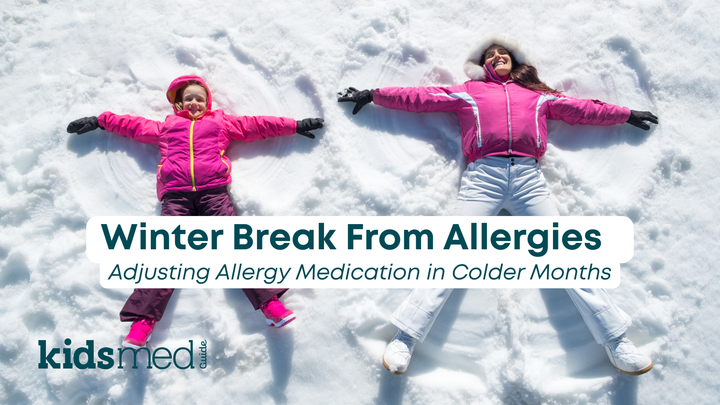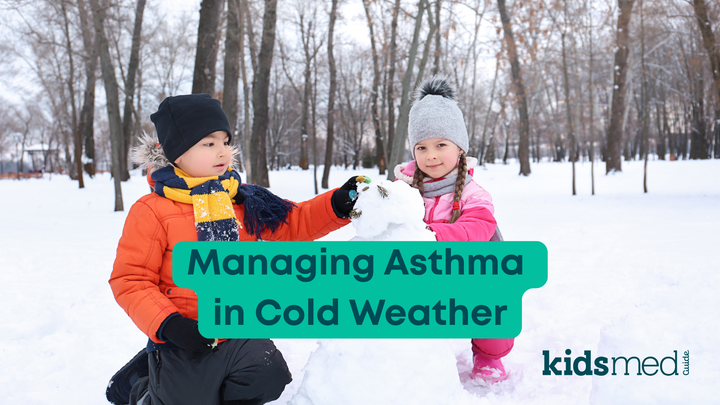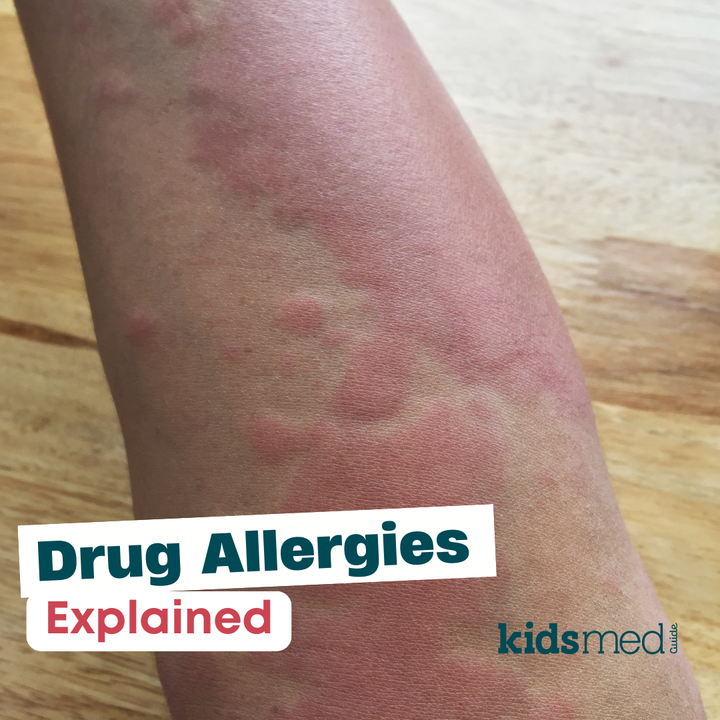What Drugs Are Safe and Effective for Seasonal Allergy Treatment in Children?

Cold winter months make me long for spring. When spring rolls around and everyone in my house can’t stop sneezing, I swiftly long for summer. Or some good noise-canceling headphones.
Where I live, we don't have four seasons but eleven. There’s winter, then fool’s spring, then winter round two, then fool’s summer, then winter round three, then early spring, then winter round four, then "THE POLLENING," then late spring, then Sahara desert. After that, fall comes, which is usually quite nice, except for the ragweed.
"The Pollening" can be divided into two phases. First, clouds of yellow dust blow everywhere and cover everything. Then, stringy orange strands fall from the trees. THEN it’s a nice spring. For those keeping track at home, maybe we have 12 seasons?
Any parent who has dealt with seasonal allergies knows how long "The Pollening" can feel. Or how the summer months can be challenging with the flowers and grass, how the fall may bring about predictable sneezing, or how wintertime kicks up those dust bunnies.
Check out our blog post, Seasonal Allergies in Kids, to learn more about seasonal allergies and how to tell the difference between them and a common cold.
Treating and Minimizing Seasonal Allergies
If you’re not sure you’re dealing with allergies, it’s best to check in with your pediatrician. If you’re sure that allergies are the culprit, then there are many treatments you can start at home with over-the-counter medications. (You can also check in with the doctor for prescriptions—for some insurances, it could be cheaper!)
The key to treating and minimizing seasonal allergies, aka hay fever or allergic rhinitis, is to have a good action plan and start early!
- Avoiding the allergen and minimizing its impact on your home is very important. See our blog post on The Best Ways to Treat Seasonal Allergies Without Medication.
- Start your child’s allergy medication early, ideally 2-4 weeks before the allergen season starts. Continue treating your child through the entire season.
- Give your child their medicine every day or as instructed by your pediatrician, regardless of how they feel each day. Medicine for seasonal allergies works best when used consistently, not sporadically.
Over-The-Counter Allergy Drugs for Kids
So, what are the best drugs for treating seasonal allergies in kids? This can vary a bit depending on age, severity of the allergy symptoms, and what types of symptoms kids have. Other conditions, like asthma, can also affect treatment choices.
In general, parents can consider the following over-the-counter recommendations:
Oral antihistamines:
- These are given by mouth and work to fight the allergic response across the whole body.
- Cetirizine (Zyrtec®), loratadine (Claritin®), and fexofenadine (Allegra®) are common examples.
- Cetirizine and loratadine are given once daily; fexofenadine is given twice daily.
- The minimum age for most products is 2 years; always read the label to ensure you're giving the correct dose for your child's age.
- They work best when given consistently before and throughout the allergy season.
- Antihistamines are often chosen as a first-line treatment, as they are easy to give to kids and come in tablets, chew tablets, and liquid formulations.
Steroid nasal sprays
- Intranasal (“into the nose”) sprays containing a steroid work very well at controlling nasal symptoms and can also help with other symptoms, like eye itchiness.
- Fluticasone (Flonase®) and mometasone (Nasonex®) are common examples.
- The minimum age varies by product but is usually around 2 or 4 years of age; be sure to read the label.
- Short-term use of topical steroids is safe; speak to your pediatrician if used chronically or with other oral or inhaled steroids.
- These can cause dryness, a funny taste, stinging, or nose bleeds—try switching to a different brand if something is bothersome.
- If your child can tolerate the nasal spray, this can be a great way to help control allergy symptoms.
Nasal saline
- There are many brands of saline irrigations, which are solutions you can squirt or drip gently into your child’s nose to help flush out mucus.
- Saline nasal sprays do not contain any active medication, and they can be used in combination with other nasal sprays (use the saline first to avoid flushing out any medicines).
- The benefit of trying nasal saline is that products are low-cost and safe when used as instructed.
- There is no minimum age, but care must be taken in the youngsters to apply it gently.
Allergy eye drops
- If itchy eyes are the primary concern, an allergy eye drop can be added to any of the above therapies or trialed independently.
- Olopatadine (Pataday®, Patanol®), ketotifen (Zaditor®, Alaway®), and alcaftadine (Lastacaft®) are common examples.
- The minimum age is usually 2 or 3 years; read the label.
- Allergy eye drops are best given every day to keep symptoms under control.
Final Thoughts
The examples listed above are everyday things you can find at your local drugstore or online retailer. You can use each option—oral antihistamine, steroid nasal spray, saline nasal spray, or allergy eye drops—alone or in combination.
They’ll work well for most children suffering from allergies. If your child is still struggling despite optimal treatment with antihistamines, eye drops, and nasal sprays, speak to your pediatrician. Prescription treatment options that may help are available.
Happy Spring!
Related:
Treating Seasonal Allergies Without Medication
Guide to Common Childhood Allergies
The following reference was used to help compile this information:
Wise, S. K., Lin, S. Y., Toskala, E., Orlandi, R. R., Akdis, C. A., Alt, J. A., Azar, A., Baroody, F. M., Bachert, C., Canonica, G. W., Chacko, T., Cingi, C., Ciprandi, G., Corey, J., Cox, L. S., Creticos, P. S., Custovic, A., Damask, C., DeConde, A., DelGaudio, J. M., … Zacharek, M. (2018). International Consensus Statement on Allergy and Rhinology: Allergic Rhinitis. International forum of allergy & rhinology, 8(2), 108–352. https://doi.org/10.1002/alr.22073



